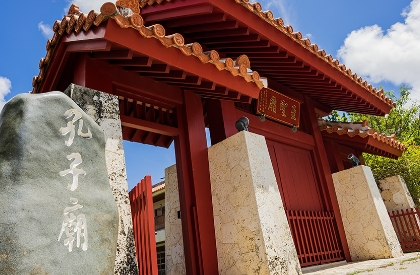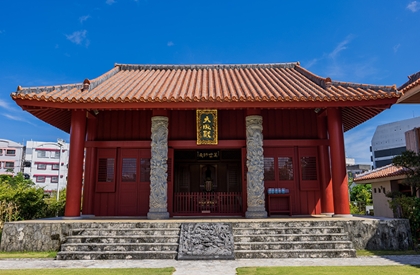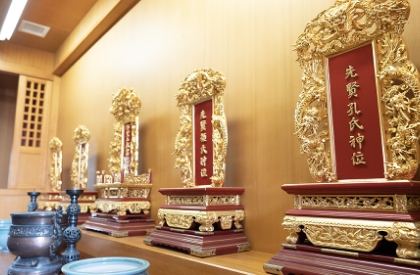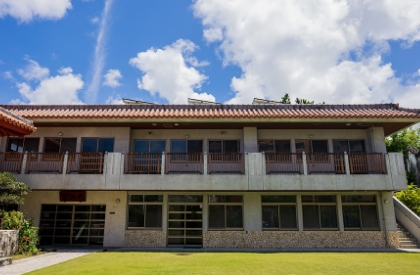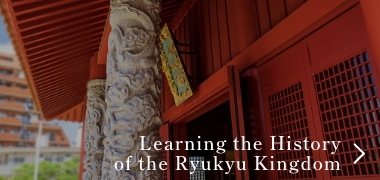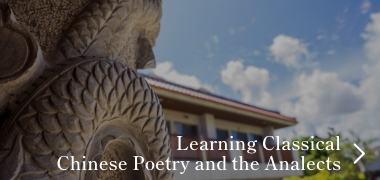The Ryukyu Kingdom and Confucianism

Kume Shiseibyo
Built using public funds during the era of the Ryukyu Kingdom to commemorate the deeds of Confucius (the founder of Confucianism), Kume Shiseibyo demonstrates just how important Confucianism was as an academic discipline for the Ryukyu Kingdom, and gives visitors the opportunity to sense the history and links with the local area of Confucianism.
Events

Sekitensairei
Conducted as an event (ceremony) of the Ryukyu Kingdom once a year, Sekitensairei had the purpose of commemorating the deeds of Confucius and his favored pupils (Yan Hui, Zengzi, Zisi, and Mencius).

On September 28, which is said to be the birth date of Confucius, offerings of pork, fish, chicken, confectionery, fruits, sugar cane, silk fabrics, and sake are made here at Kume Shiseibyo.
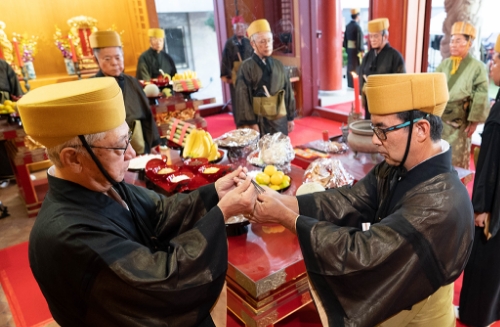
This ritual was originally conducted in the homes of volunteers residing in Kuninda (present day Kume in Naha), however, as the Ryukyu Kingdom's links with Confucianism grew even closer, members of the Sanshikan Council of Three (ministers of the Ryukyu Kingdom) presided over the event and it came to be conducted under official funding.

Today, Sekitensairei is conducted by the descendants of Kuninda as an event that conveys "the history of the old traditions of the Ryukyu Kingdom and Confucianism."
Guide to Facilities
